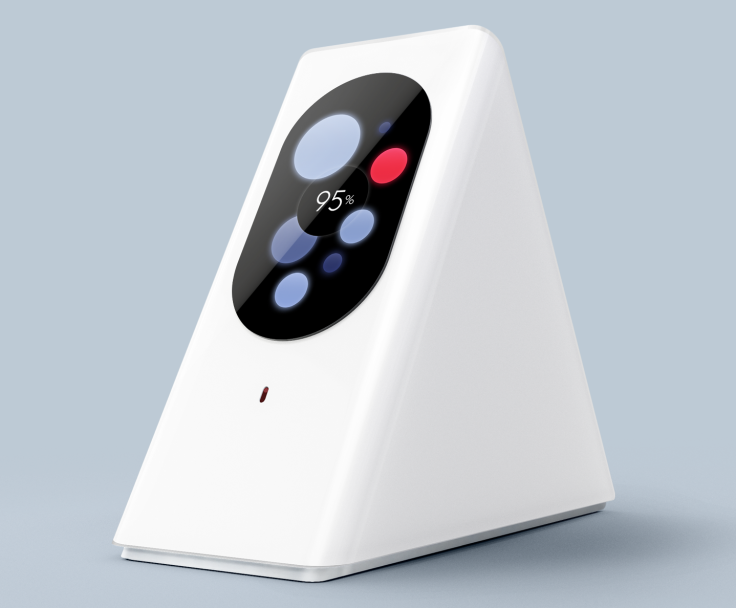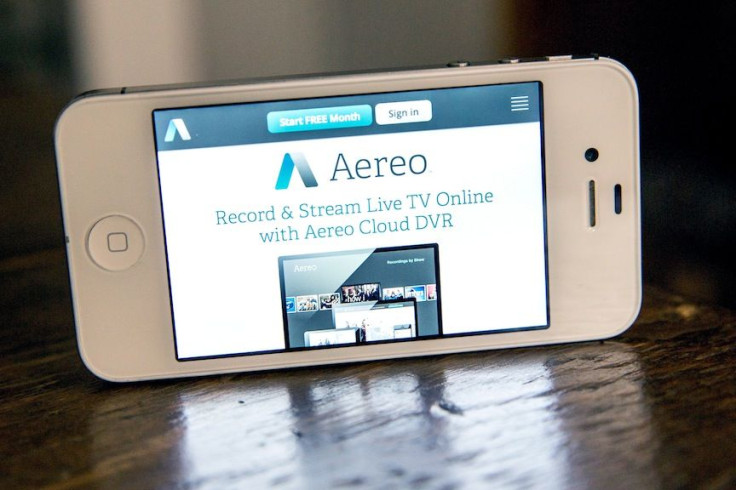Starry Internet Wants You To Cut The Cable Cord For Real, But Can It Deliver The Goods?

AUSTIN, Texas — Much to the chagrin of proud cord-cutters across the land, American internet consumers are still chiefly reliant on cable or phone companies for high-speed connectivity. To employ a variation on an old saying, it takes a pipe to stream a global village. But what if you didn’t need the pipe?
Starry Inc., a fledgling startup based in Boston and New York City, is promising to offer a true cord-free alternative that could finally untether broadband customers from the likes of Big Cable. The company says it has developed technology that can beam superfast internet directly into consumers’ homes using high-frequency millimeter wave signals. It is licensing spectrum across multiple bands and has an experimental license with the Federal Communications Commission to test the service, which differs from conventional wireless ISPs that depend on microwaves, requiring a direct line of sight between two points to deliver a signal.
By contrast, Starry says its “phased array” approach — which it says is capable of speeds of up to 1 gigabit of internet service per second — will allow it to deliver signals more efficiently in denser areas. No cables. No DSL. No hassle.
First made public in January, Starry’s plan to upend the broadband industry as we know it has met with equal parts excitement and skepticism. To make matters even more interesting, the service comes from the same people who brought you Aereo, the ill-fated TV subscription service that pulled broadcast signals out of the air and let users watch live TV on their computers. Broadcasters, you may recall, didn’t take kindly to that idea, and Aereo was urgently sued out of existence, with the U.S. Supreme Court ultimately ruling that its intricate system of mini-antennas was essentially a runaround of copyright laws.
Now Chet Kanojia, Aereo’s founder, is back with a new company and a new rabble-rousing idea. International Business Times this weekend met with Starry representatives here during the South by Southwest interactive conference, where the startup threw a party to celebrate the forthcoming release of its Starry Station wireless hub and router. The hub, which IBT saw a demonstration of, is admittedly impressive, complete with an ambient touch-screen interface, intuitive menu and even parental controls. Floating on-screen bubbles indicate how many devices are hooked up to your internet connection at any given time, a useful feature for people with multiple devices running at one time, which is to say everyone.
But a fancy hub won’t make Starry the talk of the town. It’s Starry’s cable-free internet service that could thrust the company into the stratosphere, but only if it is able to reliably deliver the speeds it promises. And that’s a big if. We hashed out some of these sticking points with Alex Moullé-Berteaux, Starry’s chief marketing officer, who is one of about 22 former Aereo staff members who joined Kanojia in the new endeavor.

International Business Times: This idea is blowing a lot of people’s minds. So you’re saying that as a subscriber I’ll be able to get internet through Starry, and I won’t need a mobile provider or a cable company?
Alex Moullé-Berteaux: Yes. It’s a wireless ISP. The premise is that trying to deliver fiber all over the U.S., let alone globally, is going to be too time-consuming. There are a bunch of areas we’ll never get to. And the cost of digging trenches and working municipality by municipality is superinefficient. And so we think that going wireless essentially gives us a way leaner infrastructure to be able to deliver service.
IBT: Does it work?
Moullé-Berteaux: We have a test up in Boston, and yes, it does work. Basically, the infrastructure is three levels. We’re have a rooftop asset. That essentially delivers wireless connectivity to the in-home device, which is the Starry Point. So that’s receiving the signal, transferring from outdoor to indoor and then propagating the signal to our Wi-Fi station.
IBT: As the consumer, which part do I need? Do I need to have this thing mounted to my roof?
Moullé-Berteaux: You do not. That’s part of our infrastructure.
IBT: Which is easier than digging holes in the ground and laying fiber like Google does?
Moullé-Berteaux: That’s right, exactly. The consumer only needs the Starry Point and the Starry Station. We expect people to sign up, buy the devices on Amazon or on our site, install them to their house, set up, and they’ve got internet.
IBT: Why has no one else done this already?
Moullé-Berteaux: There are some wireless ISPs already in the U.S., but they tend to be focused on rural areas, mostly because of the technology choices they’ve made. They’re using microwaves, which is direct line of sight, whereas what we’re doing is a much more of a phased-array approach. We’re actually less dependent on perfect line of sight, so you can do dense urban areas.

IBT: Aereo ran into legal hurdles that ultimately ended the company, and most of that came from resistance from people who perceived it as a threat to their business model. Are you guys anticipating a similar fight with cable companies, the Comcasts and Time Warner Cables of the world?
Moullé-Berteaux: Part of Aereo was already an aggressive point of view on copyright and how we were going to leverage it. There’s nothing about [Starry Internet] that’s out of current regulation or out of current law. So we don’t expect any of those kinds of issues. We’re going to be licensing spectrum, we’re going to be leveraging technology that exists, we’re going to be innovating in certain areas, and we’re going to be creating competition. So we don’t expect the incumbents to be able to fight back in the same way.
IBT: They can get pretty creative, though.
Moullé-Berteaux: Sure, and we know that. But the technical and product foundation of the company is absolutely licensed and above board. To say it a little differently, in the case of Aereo, we needed some laws to change. We needed some acceptance on the legal side. There’s no parallel here.
IBT: Are you guys getting tons of love letters from people who hate their cable companies saying, "I can’t wait for this"?
Moullé-Berteaux: For sure we’re seeing that in many places there just isn’t any choice. And so anytime you come in with some new and interesting ideas, people are definitely open. You have so many markets in the U.S. where you have one cable company and one DSL provider, and that’s it. And the prices reflect that.
This conversation has been edited for length and clarity. Christopher Zara covers media and culture. News tips? Email me. Follow me on Twitter @christopherzara
© Copyright IBTimes 2025. All rights reserved.






















